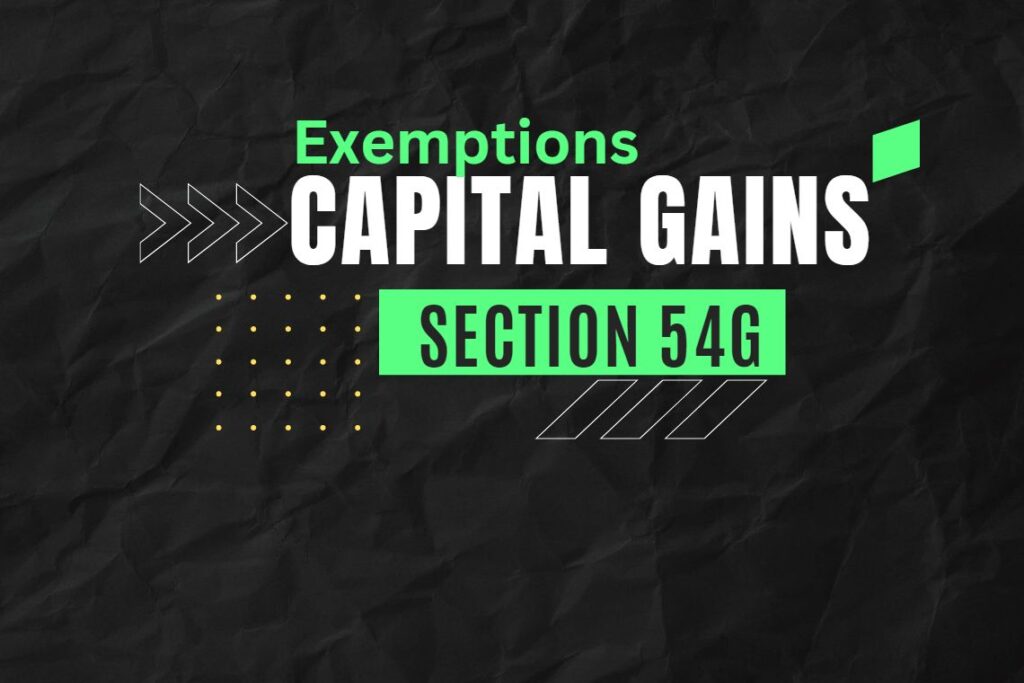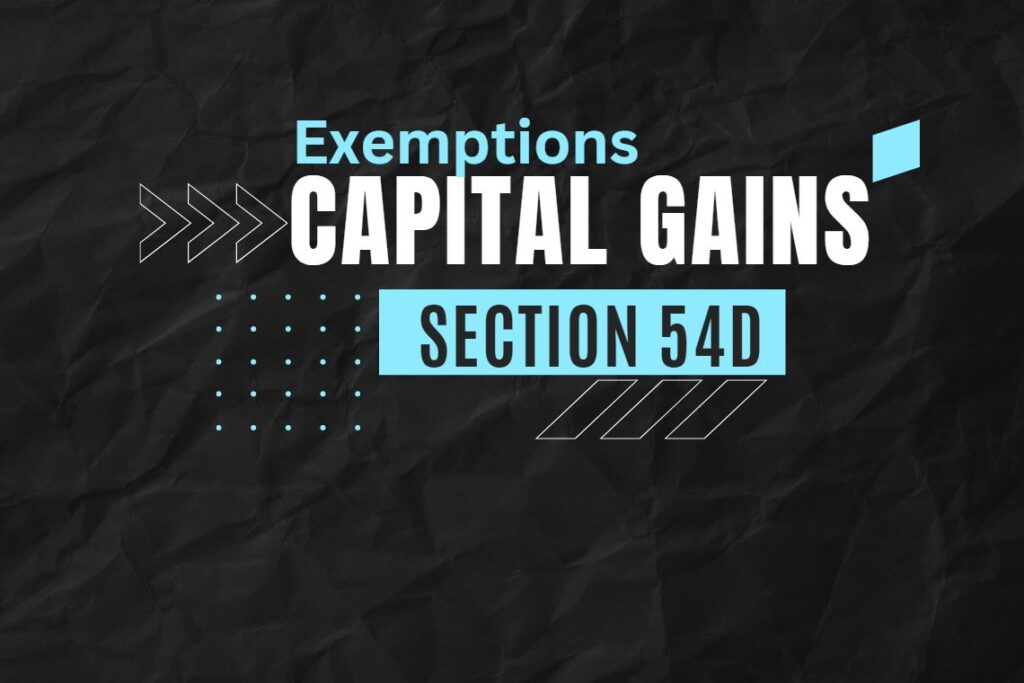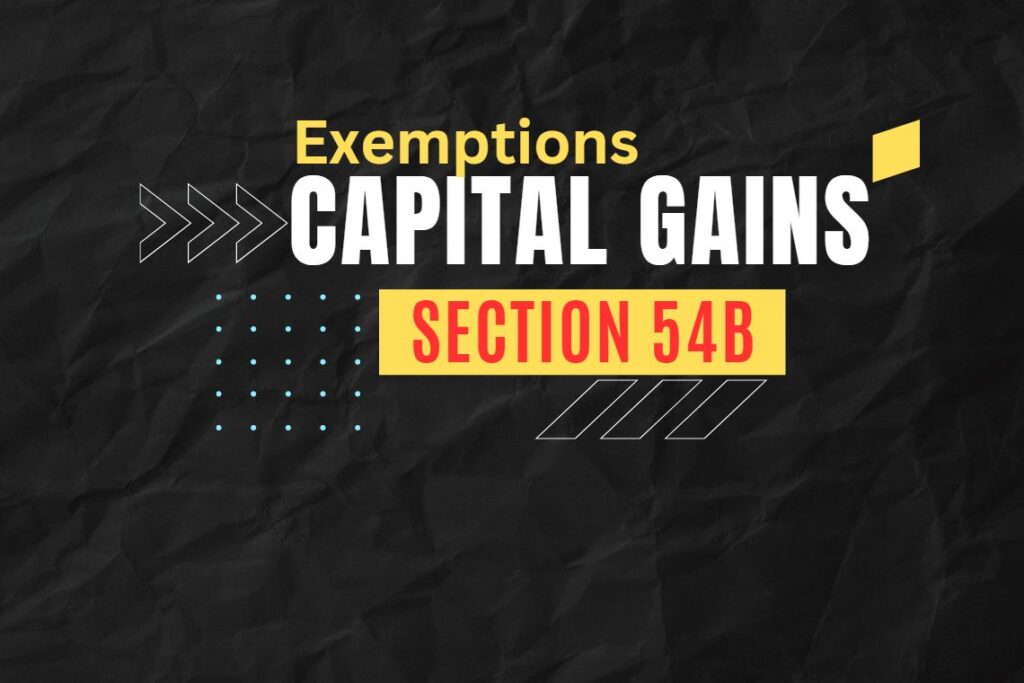Section 54H of the Income Tax Act, 1961 in India provided for an extension of time for acquiring a new asset or depositing or investing the amount of capital gain in the case of compulsory acquisition of land or buildings.
Here we analyze Section 54H under Capital Gains towards Extension of Time for Acquiring New Assets or Depositing or Investing Amount of Capital Gains, in case of Compulsory Acquisition by Law.
There may be a time lag between the previous year in which the asset is compulsorily acquired aid the previous year in which the compensation is actually received.
As per section 54H, the period for acquiring the new asset by the assessee referred to in sections 54, 54B, 54D, 54EC and 54F (i.e., six months, one year before or two/three years after the date of transfer of the asset) shall be reckoned from the date of receipt of such compensation and not from the date on which the asset was originally transferred.
In the case of compulsory acquisition, the ‘transfer’ takes place in the year in which the asset is compulsorily acquired by law, but the capital gain arises in the previous year in which the part/full amount of compensation is received.
Analysis of the above provisions and the provisions discussed for compulsory acquisition earlier would reveal the following:
(a) the transfer takes place in the year of compulsory acquisition. Therefore, indexation will be done till the year of compulsory acquisition;
(b) the capital gain will, however, arise in the previous year in which the part/full compensation is received;
(c) the period for investment in the specified new asset u/ss 54, 54B, 54D, 54EC and 54F or under capital gain scheme, wherever applicable will begin from the date when the compensation is received. If such a compensation is received in instalments, the period for investment in the specified asset/deposit in capital gain scheme will be considered for each instalment separately, although the entire capital gain will arise in the previous year in which the first instalment is received;
(d) similarly, if enhanced compensation is received, the period for investment shall be reckoned from the date the enhanced compensation is received. Where such enhanced compensation is received in instalments, the period for reinvestment shall be reckoned from the date each instalment of enhanced compensation is received.
| The extension of time as per section 54H is not available for section 54G/54GA. |
Summary :
Extension of Time for Acquiring New Asset or Depositing or Investing Amount of Capital Gain, in case of Compulsory Acquisition.
Here are the key provisions under Section 54H:
- Applicability: Section 54H is applicable when an individual or Hindu Undivided Family (HUF) receives compensation due to the compulsory acquisition of land or buildings, and they intend to claim an exemption from capital gains tax.
- Time Limit for Acquisition/Investment: Normally, to claim an exemption under Section 54H, the taxpayer must acquire a new asset (typically another land or building) or deposit the capital gain amount in a specified account within a specific time frame. As of my last update, the time frame was as follows:
Acquisition of New Asset: Within two years from the date of the compulsory acquisition.
Deposit in a Capital Gains Account Scheme: If the new asset is not acquired before the due date of filing the income tax return, the unutilized capital gain must be deposited in a Capital Gains Account Scheme before the due date of filing the return.
- Extension of Time: Section 54H allows for an extension of the time limit for acquiring a new asset or depositing the capital gain amount in certain cases. The conditions for extension are typically based on circumstances beyond the taxpayer’s control, such as legal disputes or delays in compensation receipt.
- Conditions for Extension: The extension is granted if the assessing officer is satisfied that the delay in acquiring the new asset or depositing the capital gain amount was due to reasons beyond the control of the taxpayer.
- Amount of Capital Gain: The exemption from capital gains tax is limited to the amount of compensation received for the compulsory acquisition.
- Tax Implication on Non-Utilization: If the taxpayer does not utilize the capital gain amount to acquire a new asset or deposit it in the specified account within the prescribed time, the unutilized amount may become taxable as capital gains in the year of such non-utilization.











